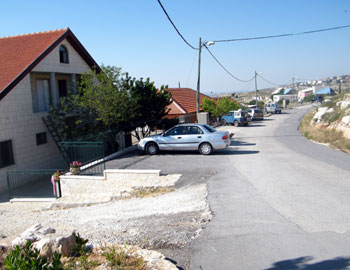true dat
the 9000 peasants evicted from the jezreel valley were justly compensated
In the 1870s, the Sursock family of Beirut (present-day Lebanon) purchased the land from the Ottoman government for approximately £20,000. Between 1912 and 1925 the Sursock family (then under the French Mandate of Syria) sold their 80,000 acres (320 km²) of land in the Vale of Jezreel to the American Zion Commonwealth for about nearly three quarters of a million pounds, who purchased the land for Jewish resettlement and the Jewish National Fund.
Following these sales, the 8 000 Arab farmers who lived in 22 villages working for the absentee landowners were evicted. Some farmers refused to leave their land, as in Afula (El-Ful), however the new owners decided that it would be inappropriate for these farmers to remain as tenants on land intended for Jewish labor, and they also followed the socialist ideology of the Yishuv, believing that it would be wrong for a (Jewish) landlord to exploit a landless (Arab) peasant. British police had to be used to expel some and the dispossessed made their way to the coast to search for new work with most ending up in shanty towns on the edges of Jaffa and Haifa.
contrast all that with the mandate....
To safeguard the civil and religious rights of all inhabitants of Palestine irrespective of race and religion, and, whilst facilitating Jewish immigration and settlement, to ensure that the rights and position of other sections of the population are not prejudiced.
"it is necessary that the Jewish community in Palestine should be able to increase its numbers by immigration. This immigration cannot be so great in volume as to exceed whatever may be the economic capacity of the country at the time to absorb new arrivals. It is essential to ensure that the immigrants should not be a burden upon the people of Palestine as a whole, and that they should not deprive any section of the present population of their employment."
-------------------------------
It is a mistake to assume that the Vale of Esdraelon was a wilderness before the arrival of the Jewish settlers and that it is now a paradise. A very large amount of money has been spent by the various Jewish agencies, and great improvements have been made. The work that has been done, especially in the direction of drainage and the introduction of new and improved methods of agriculture is highly valuable. There can be little doubt that in time, the application of capital, science, and labour will result in general success. It is, however, unjust to the poverty stricken fellah' who has been removed from these lands that the suggestion should continually be made that he was a useless cumberer of the ground and produced nothing from it. It should be quite obvious that this is not the fact.
In ancient times Esdraelon was the granary, and by the Arabs is still regarded as the most fertile tract of Palestine
and the plunder continues unabated..
Settlements, of which there are now hundreds, come in every shape, size and hue. From mini-cities – part Stevenage, part Stepford – such as Maale Adumim, to the wild West Bank fort at Hebron.
Many settlements are little more than dormitory towns for commuters who can't afford family homes in Israel and have been enticed over the Green Line with generous state subsidies and a nudge-nudge-wink-wink, "don't worry, we'll never give it back." Then there are the "Hilltop Youth," fresh-faced, pious and prone to thuggery, whose DIY illegal encampments pock Judea's shapely peaks, the fast-breeding "facts on the ground".
There are settlements for the very religious and settlements for the totally secular. There are settlements for Russian immigrants and settlements for English speakers. There are even several little-publicised settlements whose inhabitants believe in peace and fostering good relations with their Palestinian neighbours.
Israel’s High Court legitimizes looting of land in Derekh Ha’avot outpost
On 1 September 2010, Israel's High Court of Justice sanctioned the looting of land and the unlawful building carried out in establishing the Derekh Ha'avot outpost, near the Elazar settlement, in the Etzion Bloc. The court's decision was made even though the state had declared for almost nine years that the construction in the outpost was unlawful. The court rejected Peace Now's petition, filed in 2008, demanding evacuation of the outpost and its residents, who had taken control of land they did not own and had built houses without obtaining a building permit. It also refrained from ordering the state to set a binding time-table for enforcing the law. The court based its decision, written by Justice Edmond Levy, with justices Edna Arbel and Neal Handel concurring, on the claim that the court refrains, as a rule, from interfering in priorities of the defense establishment relating to law enforcement. On this pretext, the Israeli judicial system, including Supreme Court justices sitting as the High Court of Justice, has not ordered enforcement of the law on the outposts for 12 years.




